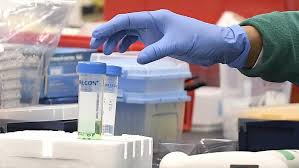Free vaccinations for COVID-19 will be made available next year in Australia, depending on the outcome of “promising” drug trials, the Australian Government is expected to announce on Monday.
In a statement released late on Sunday, the Federal Government said that contingent on the outcome of ongoing trials, vaccines would be made available “progressively” throughout 2021, following a $1.7 billion supply and production agreement with pharmaceutical companies AstraZeneca and CSL/Seqirus.
The agreements would see the University of Oxford/AstraZeneca and the University of Queensland/CSL provide more than 84.8 million vaccine doses for the Australian population, with early access to 3.8 million doses of the University of Oxford vaccine in January and February 2021.
If the Oxford vaccine trials prove successful and safe, it would be made available from the beginning of next year, while a UQ vaccine would be available mid-2021.
The agreements are for 33.8 million doses of an Oxford vaccine and 51 million doses of a UQ vaccine.
More than 95 per cent of the vaccine doses are expected to be manufactured in Australia, with each batch taking approximately one month to manufacture.
They are expected to be delivered monthly beginning in January, if they pass scientific testing and regulatory approval.
The full details of the agreements are expected to be officially announced on Monday by Prime Minister Scott Morrison, along with Health Minister Greg Hunt and the Minister for Industry, Science and Technology Karen Andrews.
In a statement, Mr Morrison said both vaccines would need to be proven safe and effective in trials and meet regulatory requirements before being made publicly available.
“Australians will gain free access to a COVID-19 vaccine in 2021 if trials prove successful,” Mr Morrison said.
“By securing the production and supply agreements, Australians will be among the first in the world to receive a safe and effective vaccine, should it pass late-stage testing.
“There are no guarantees that these vaccines will prove successful, however, the agreement puts Australia at the top of the queue if our medical experts give the vaccines the green light.”
Australians will only need to take one of the successful vaccine candidates, with an initial dose followed by a booster dose of the same vaccine within weeks.
It is likely vulnerable people and front-line health workers will be provided with vaccinations first.
Large clinical trials are currently underway to test the vaccines, with the Oxford vaccine currently in a phase 3 trial of 30,000 people, and preliminary results expected to be available in December.
The UQ vaccine is in the early phase 1 clinical trial, which uses a small controlled group of people to see if it provokes an immune response. If successful, it will then move on to phase 2, which tests a few hundred people across different demographics
The Government has secured access to 84.8 million potential vaccine doses to cover Australia’s 25 million population in case one, or both, of the vaccines prove unsuccessful.
The Oxford vaccine doses are expected to cover as many as 16.9 million people, with the UQ vaccine doses to cover 25.5 million.
The statement said Mr Morrison was committed to ensuring access to vaccines for Pacific and South-East Asian countries, with both agreements allowing for additional orders to be negotiated and for doses to be donated or on-sold to other countries or international organisations at no mark-up.
If both vaccines prove successful, that could mean as many as 30 million doses could be provided to neighbouring countries.
According to the World Health Organization, there are 165 COVID-19 vaccine candidates in development with 32 in human trials and eight in the more advanced phase 3 trials.

